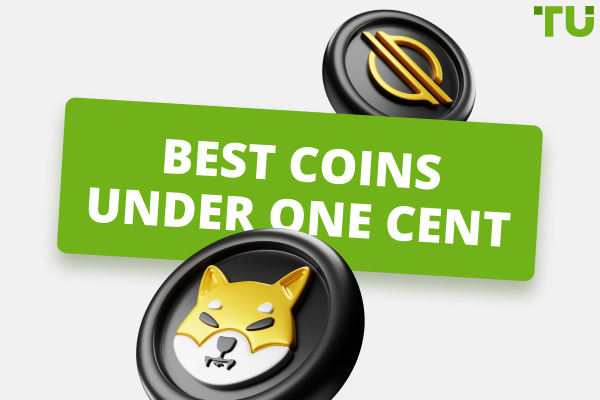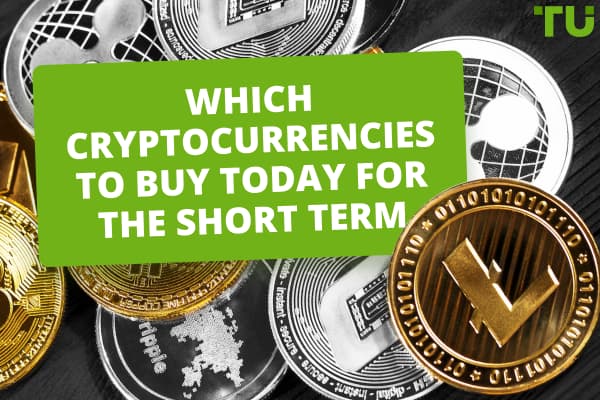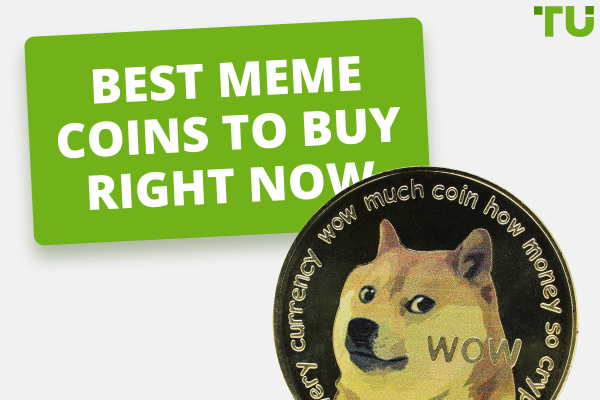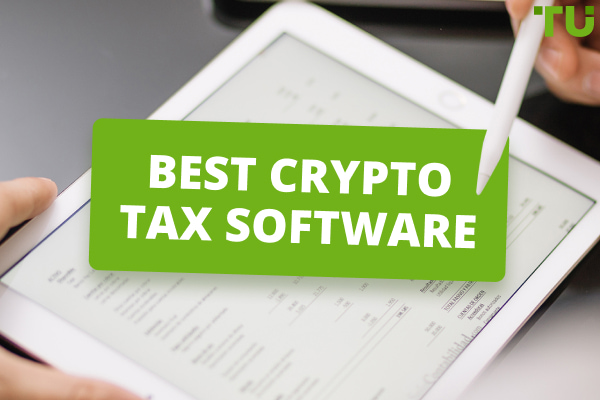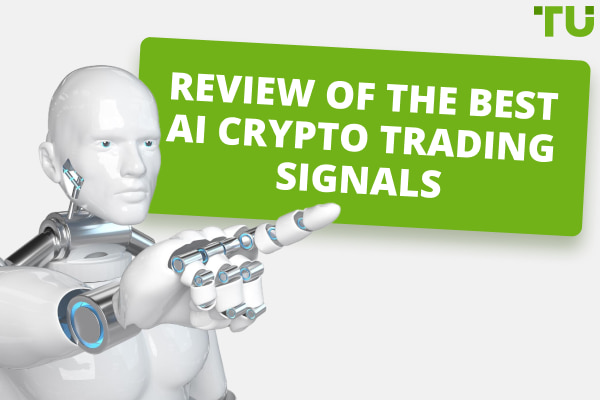Ethereum vs Solana - What's the difference for investors?
Ethereum and Solana are both blockchain platforms that have gained popularity in the cryptocurrency market. Ethereum, known to be the primary altcoin, is the second-largest cryptocurrency by market capitalization and is widely used for smart contracts and decentralized applications (dApps). Solana, on the other hand, is a newer platform that aims to solve the scalability issues faced by Ethereum and other blockchain networks.
Ethereum and Solana are two of the most popular cryptocurrencies on the market today, but what sets them apart, and which one is the better investment option? It's important to note that both Ethereum and Solana are widely used, and well-established cryptocurrencies, but have different properties, functionalities, and use cases. By understanding these fundamental differences, investors can make a more informed decision on which cryptocurrency to invest in for maximum profit.
Start investing in crypto now with Bybit!Ethereum or Solana: which investment asset is better?
In this analytical review, the TU experts will take a closer look at the key differences between Ethereum and Solana, and provide an overview of the pros and cons of each option to help investors decide which cryptocurrency aligns best with their investment goals. They will also discuss the fundamentals of each cryptocurrency and their functional comparison. By the end of this article, you will have a better understanding of which cryptocurrency is the best fit for your investment goals. Whether you're a seasoned investor or new to the world of cryptocurrency, this article will provide valuable insights to help guide your investment decisions.
What is Ethereum?
Popularly known as the first altcoin, Ethereum is the second-largest cryptocurrency by market capitalization. It is currently undertaking a transition towards Ethereum 2.0, also known as Serenity. This represents the next phase of Ethereum's development and aims to address some of the scalability, security, and sustainability issues faced by the current Ethereum network. Ethereum 2.0 will use a new consensus mechanism called Proof-of-Stake (PoS) which will replace the current Proof-of-Work (PoW) mechanism, making the network more energy-efficient. The upgrade will also introduce shard chains, which will increase the network's capacity for processing transactions, and a new virtual machine called eWASM, which will enhance the network's smart contract capabilities. Ethereum 2.0 will also bring a more secure, faster, and more efficient experience for users and developers.
What is Solana?
Solana is a high-performance blockchain platform that aims to provide fast, secure, and low-cost transactions for decentralized applications (dApps) and decentralized finance (DeFi) projects. It uses a unique consensus mechanism called "Proof of History" (PoH) which allows for high throughput and low latency, making it a suitable choice for high-frequency trading and other high-performance use cases. Solana also utilizes a technology called "Tower BFT" to ensure the network is fast, secure, and decentralized. The Solana network also has a native token called Solana (SOL), which is used to pay transaction fees and secure the network through staking. Overall, Solana is a blockchain platform that aims to provide a high-performance infrastructure that can support a wide range of decentralized applications, while also being energy efficient.
Ethereum vs Solana: funcional comparison
| Ethereum (ETH) | Solana (SOL) | |
|---|---|---|
Capitalization |
$143 billion Source: Nerdwallet |
$4 billion Source: Nerdwallet |
Transaction speed |
30 TPS Source: Analytics Insight |
65,000 Source: Analytics Insight |
Consensus Algorithm |
Proof-of-Stake (PoS) Source: Nerdwallet |
Proof-of-History (PoH)/ Delegated Proof-of-Stake Source: Nerdwallet |
Scalability |
Limited Scalability Source: beincrypto |
High Scalability Source: beincrypto |
Commission within the network |
Transaction Cost: 3 Gwei ($0.09) |
Transaction Cost: 0.0000053 SOL - ($0.0000014) |
Total Supply/Circulating Supply |
Circulating Supply: 122,373,866 ETH Source: CoinMarketCap |
Total Supply: 538,941,892 SOL Circulating Supply: 370,992,449 SOL Source: CoinMarketCap |
TVL |
$26.77 billion Source: defillama |
$258.01million Source: defillama |
Staking opportunity |
Yes |
Yes |
Ethereum vs Solana: price comparison
| Ethereum | Solana | |
|---|---|---|
Price now |
3881.70$ |
24.55$ |
1m change |
32.18% |
122.90% |
1 y change |
-34.11% |
-72.95% |
Ethereum vs Solana: funcional comparison
| Ethereum (ETH) | Solana (SOL) | |
|---|---|---|
Pros |
1. Large developer community and ecosystem. 2. Solidity programming language for smart contracts. 3. First and largest platform for decentralized applications (dApps). 4. High liquidity and trading volume. 5. Strong brand recognition and reputation. |
1. High throughput and low transaction fees. 2. Advanced scalability solutions. 3. Built-in decentralized exchange (DEX). 4. Strong focus on decentralized finance (DeFi) applications. 5. Use of the Serum protocol for faster and more efficient trading. |
Cons |
1. High transaction fees during periods of network congestion. 2. Slow transaction processing times. 3. Limited scalability. |
1. Smaller developer community and ecosystem. 2. Limited support for smart contract languages. 3. Less established and less well-known compared to Ethereum. 4. Newer and less tested platform. |
Ethereum and Solana are both blockchain platforms that offer different features and capabilities. Ethereum, the first and largest platform for decentralized applications (dApps), has established itself as the go-to choice for many developers and projects. It has a large and active community of developers, a solid programming language for smart contracts (Solidity), and a robust ecosystem of dApps, tokens, and decentralized finance (DeFi) projects. It also has high liquidity and trading volume, making it easy for users to buy and sell ETH and other tokens on the platform. However, Ethereum's scalability issues have been a significant concern for some time, with high transaction fees and slow confirmation times during periods of network congestion.
Solana, on the other hand, is a newer blockchain platform that has been gaining traction in recent years. It offers some advantages over Ethereum, particularly when it comes to scalability. Its advanced scalability solutions, such as the use of the Solana protocol and high-performance blockchain architecture, allow for fast and cheap transactions. It also has a built-in decentralized exchange (DEX) and a strong focus on DeFi applications. This makes Solana a good choice for projects that need high throughput and low transaction fees. However, Solana's ecosystem is not as mature as Ethereum's, and it has a smaller developer community and fewer dApps and tokens available on the platform. Additionally, it's a less well-known platform than Ethereum.
In summary, Ethereum and Solana are two blockchain platforms that offer different features and capabilities. Ethereum is the more established and mature platform while Solana is a newer platform that offers better scalability solutions. Depending on your use case and the features that are most important to you, either Ethereum or Solana could be the right choice.
Should I Buy Ethereum (ETH) 2024? Top Pros and ConsCommon features of Ethereum and Solana
Ethereum and Solana share some common features, as both are blockchain platforms that support smart contract functionality and decentralized applications (dApps).
One of the most significant common features of Ethereum and Solana is the ability to execute smart contracts. Smart contracts are self-executing contracts with the terms of the agreement written directly into lines of code. Ethereum uses the Solidity programming language to write smart contracts, while Solana can support multiple smart contract languages such as Solidity and JavaScript. Both Ethereum and Solana allow for the creation and deployment of smart contracts, making it possible to build a wide range of decentralized applications (dApps) on both platforms.
Another common feature of Ethereum and Solana is the support for decentralized applications (dApps). A dApp is an application that runs on a blockchain network. It can be a decentralized version of a traditional application, such as a decentralized exchange (DEX) or a game. Both Ethereum and Solana support the development and deployment of dApps, making it possible to build a wide range of decentralized applications on both platforms.
Both Ethereum and Solana are also open-source, decentralized platforms, meaning that anyone can use and contribute to the development of the platform. This allows for a large community of developers to contribute to the development and maintenance of the platform and also for the creation of a wide range of decentralized applications and services that run on the platform.
Lastly, Ethereum and Solana are the base layer for many DeFi applications. DeFi is a growing ecosystem of financial applications and services that run on a blockchain network, such as lending, borrowing, trading, and more. Both have a strong focus on DeFi and have seen an increase in such applications built on their platforms.
In conclusion, Ethereum and Solana share some common features as they are both blockchain platforms that support smart contract functionality and decentralized applications (dApps), are open-source, decentralized, and have a strong focus on DeFi. However, they also have their own unique features and capabilities, such as Ethereum's solidity programming language and Solana's scalability solutions. Therefore, it's essential to consider your specific use case and the features that are most important to you when choosing between the two platforms.
Basic differences between Solana and Ethereum
Now that we’ve discussed the common features of the two blockchain platforms, let’s look at their basic differences. Solana has been designed with advanced scalability solutions, such as its use of the Solana protocol and high-performance blockchain architecture. This allows for fast and cheap transactions, with Solana currently capable of handling over 65,000 transactions per second. In contrast, Ethereum's scalability is limited by its current architecture, and transactions can be slow and expensive during periods of high network usage.
Another difference is the cost of transactions, Solana has lower transaction fees compared to Ethereum. Solana also uses the Proof of History (POH) consensus mechanism, which is more energy-efficient, while Ethereum uses the Proof of Stake (POS) consensus mechanism.
In terms of community and ecosystem, Ethereum has a larger and more established developer community and ecosystem, with a wide range of decentralized applications (dApps), tokens, and decentralized finance (DeFi) projects available on the platform. Solana, on the other hand, is a newer platform with a smaller developer community and fewer dApps and tokens available on the platform.
In summary, while both Ethereum and Solana are blockchain platforms that support smart contract functionality and decentralized applications (dApps), they have different scalability solutions, transaction fees, and consensus mechanisms, Ethereum has a more established ecosystem, but Solana has better scalability and lower transaction fees. So again, the choice between the two platforms depends on the specific use case and the features that are most important to you.
Solana price prediction: can Solana reach $1,000, $10,000?Solana vs. Ethereum: which one is the better investment?
The experts at TU have reviewed various analyst opinions and curated the following rationale.
Ethereum (ETH) is considered to be a more stable and reliable asset than Solana (SOL) due to its established track record and large market capitalization. ETH has been around since 2015 and has a large developer community constantly working on improving the network and creating new decentralized applications. It is also currently the second-largest cryptocurrency by market capitalization.
However, Solana has more potential for growth if the entire crypto market experiences a breakthrough. Solana is a newer blockchain that is designed to handle high transaction speeds and low fees. It is also gaining popularity among decentralized application developers and is currently ranked as one of the largest cryptocurrencies by market capitalization.
In terms of investment, it may make sense to diversify risks by investing in both ETH and SOL. This allows investors to have exposure to the stability and reliability of ETH while also having the potential for growth with SOL. It is important to note that cryptocurrency investing is highly speculative and always carries a high degree of risk. It is crucial to do your research and consult a financial advisor before making any investment decisions.
Ethereum and Solana price predictions
When it comes to price predictions for Ethereum (ETH) and Solana (SOL), one must note that they are highly speculative and subject to a high degree of uncertainty. Cryptocurrency prices are influenced by various factors, including market sentiment, regulatory changes, and technological developments, and considering them is a vital requirement for investing in this asset class.
That being said, there are various price predictions for ETH and SOL made by different experts and analysts.
Ethereum price prediction 2024
| Month | Minimum Price | Maximum Price | Average Price |
|---|---|---|---|
| March 2023 | $1672.37 | $2044.01 | $1858.19 |
| April 2023 | $1761.17 | $2152.55 | $1956.86 |
| May 2023 | $1820.38 | $2224.9 | $2022.64 |
| June 2023 | $1923.97 | $2351.53 | $2137.75 |
| July 2023 | $2027.57 | $2478.15 | $2252.86 |
| August 2023 | $2131.16 | $2604.76 | $2367.96 |
| September 2023 | $2234.76 | $2731.38 | $2483.07 |
| October 2023 | $2353.17 | $2876.09 | $2614.63 |
| November 2023 | $2427.16 | $2966.54 | $2696.85 |
| December 2023 | $2589.97 | $3165.51 | $2877.74 |
Ethereum price prediction - 2025, 2030, 2033
| Year | Price in the middle of the year | Price at the end of the year |
|---|---|---|
| 2023 | $2158.31 | $2877.74 |
| 2024 | $3576.62 | $4768.82 |
| 2025 | $4069.94 | $5426.59 |
| 2026 | $6166.58 | $8222.1 |
| 2027 | $9866.52 | $13155.36 |
| 2028 | $12209.82 | $16279.76 |
| 2029 | $16033.1 | $21377.46 |
| 2030 | $20793.69 | $27724.92 |
| 2031 | $24049.64 | $32066.19 |
| 2032 | $28736.24 | $38314.99 |
| 2033 | $33176.18 | $44234.9 |
| 2034 | $35766.14 | $47688.18 |
Solana price prediction 2024
| Month | Minimum Price | Maximum Price | Average Price |
|---|---|---|---|
| March 2023 | $23.78 | $29.06 | $26.42 |
| April 2023 | $25.04 | $30.6 | $27.82 |
| May 2023 | $25.88 | $31.64 | $28.76 |
| June 2023 | $27.35 | $33.43 | $30.39 |
| July 2023 | $28.83 | $35.23 | $32.03 |
| August 2023 | $30.3 | $37.04 | $33.67 |
| September 2023 | $31.77 | $38.83 | $35.3 |
| October 2023 | $33.45 | $40.89 | $37.17 |
| November 2023 | $34.51 | $42.17 | $38.34 |
| December 2023 | $36.83 | $45.01 | $40.92 |
Solana price prediction - 2025, 2030, 2033
| Year | Price in the middle of the year | Price at the end of the year |
|---|---|---|
| 2023 | $30.69 | $40.92 |
| 2024 | $50.85 | $67.8 |
| 2025 | $57.86 | $77.15 |
| 2026 | $87.68 | $116.9 |
| 2027 | $140.28 | $187.04 |
| 2028 | $173.6 | $231.46 |
| 2029 | $227.96 | $303.94 |
| 2030 | $295.64 | $394.19 |
| 2031 | $341.93 | $455.91 |
| 2032 | $408.56 | $544.75 |
| 2033 | $471.69 | $628.92 |
| 2034 | $508.52 | $678.02 |
Where to buy Solana (SOL) and Ethereum (ETH)
FAQ
Is Solana better than Ethereum?
Solana and Ethereum are both blockchain platforms with different strengths and use cases. Solana is designed to handle high transaction speeds and low fees, making it suitable for decentralized applications that require fast and efficient transactions. Ethereum, on the other hand, has a larger developer community and a more established track record. It is also currently the second-largest cryptocurrency by market capitalization. Both Solana and Ethereum have their own unique features, and it's difficult to say which one is better overall. It ultimately depends on the specific use case and the individual's preference.
Is Ethereum more secure than Solana?
Both Ethereum and Solana are built on blockchain technology, which is inherently secure. However, Ethereum has been around since 2015 and has a larger community of developers working to improve the network's security. As a newer blockchain, Solana has yet to be tested in the same way as Ethereum. That being said, the best of the two can’t be named with certainty given the dynamic environment of the crypto markets.
Why is Solana so special?
Solana is special because it is designed to handle high transaction speeds and low fees, making it suitable for decentralized applications that require fast and efficient transactions. Solana's unique architecture allows it to process up to 65,000 transactions per second, which is significantly faster than Ethereum's current transaction speed. Additionally, Solana uses a unique consensus algorithm called "Proof of History" which allows it to validate transactions and secure the network in a more energy-efficient way.
Is Solana running on Ethereum?
No, Solana is a separate blockchain platform and is not running on Ethereum. Solana has its own unique architecture and consensus algorithm and operates independently of Ethereum.
Glossary for novice traders
-
1
Broker
A broker is a legal entity or individual that performs as an intermediary when making trades in the financial markets. Private investors cannot trade without a broker, since only brokers can execute trades on the exchanges.
-
2
Ethereum
Ethereum is a decentralized blockchain platform and cryptocurrency that was proposed by Vitalik Buterin in late 2013 and development began in early 2014. It was designed as a versatile platform for creating decentralized applications (DApps) and smart contracts.
-
3
Cryptocurrency
Cryptocurrency is a type of digital or virtual currency that relies on cryptography for security. Unlike traditional currencies issued by governments (fiat currencies), cryptocurrencies operate on decentralized networks, typically based on blockchain technology.
-
4
Trading
Trading involves the act of buying and selling financial assets like stocks, currencies, or commodities with the intention of profiting from market price fluctuations. Traders employ various strategies, analysis techniques, and risk management practices to make informed decisions and optimize their chances of success in the financial markets.
-
5
Investor
An investor is an individual, who invests money in an asset with the expectation that its value would appreciate in the future. The asset can be anything, including a bond, debenture, mutual fund, equity, gold, silver, exchange-traded funds (ETFs), and real-estate property.
Team that worked on the article
Chinmay Soni is a financial analyst with more than 5 years of experience in working with stocks, Forex, derivatives, and other assets. As a founder of a boutique research firm and an active researcher, he covers various industries and fields, providing insights backed by statistical data. He is also an educator in the field of finance and technology.
As an author for Traders Union, he contributes his deep analytical insights on various topics, taking into account various aspects.
Dr. BJ Johnson is a PhD in English Language and an editor with over 15 years of experience. He earned his degree in English Language in the U.S and the UK. In 2020, Dr. Johnson joined the Traders Union team. Since then, he has created over 100 exclusive articles and edited over 300 articles of other authors.




